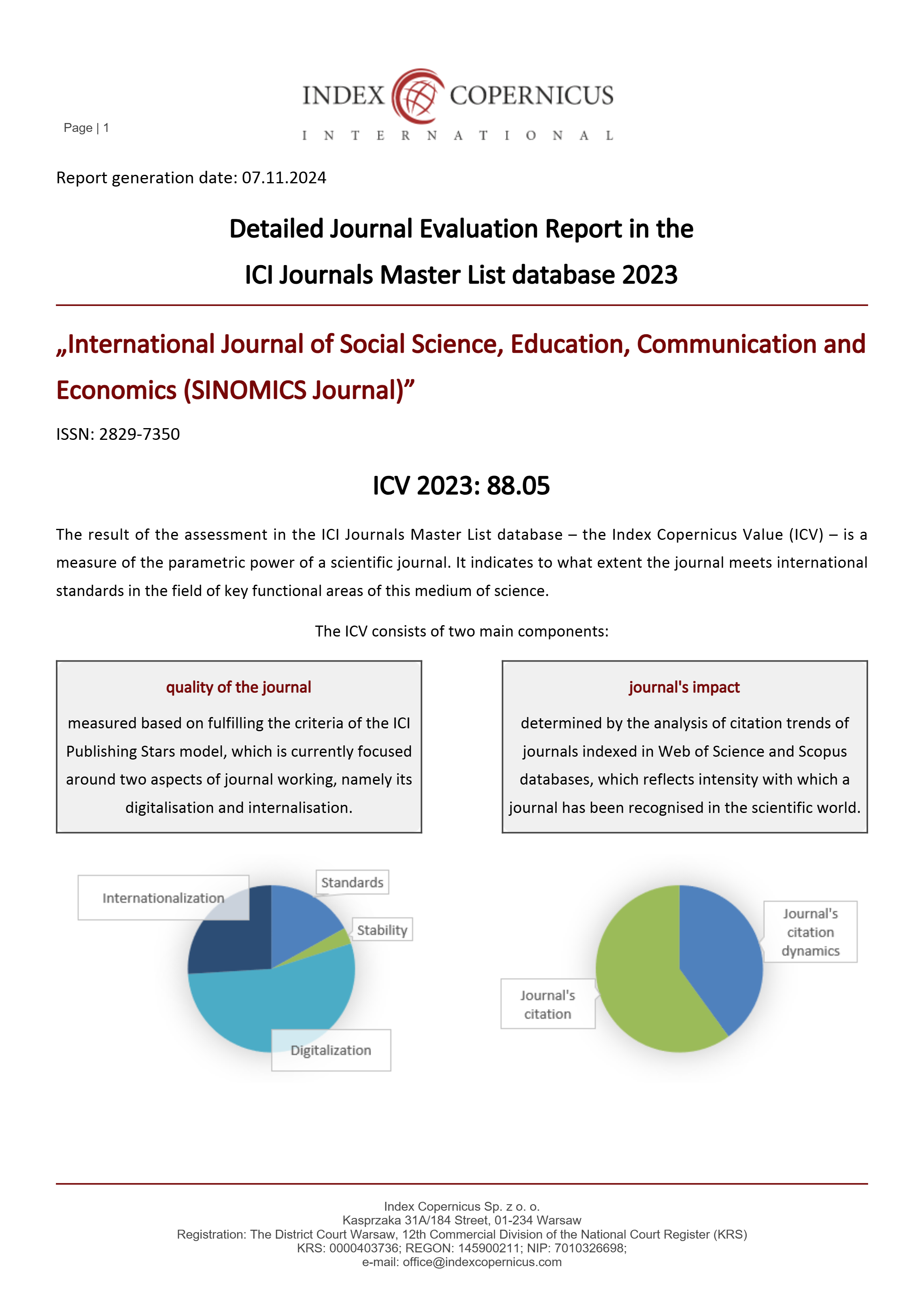The Correlations Between Effective Interpersonal Communication and Barriers in The Adjustment of The New Students
Main Article Content
Ratna Hastuti
Agus Dwi Nugroho
Alang Gumilang Berlian
The purpose of this study was to examine the correlations between effective interpersonal communication and barriers in the adjustment of the new student. It was hypothesized that there was a relationship between effective interpersonal communication and barriers in adjustment of the new students; and there was a negative correlation between effective interpersonal communication and barriers in adjustment. The first added hypothesis was that there were differences barriers in adjustment between students group based on lesson selection no used non cognitive test and used non cognitive test. The second added hypothesized that there were differences of barriers in adjustment based on sex. The subjects were 64 students on several faculties in The Gadjah Mada University Yogyakarta; 31 males & 33 females; 34 no used non cognitive tests and 30 used non cognitive tests, academic period 2003/2004 S-1 regular. Two scales were applied to measure barriers in adjustment and effective interpersonal communication. The results of the study showed that there were negative correlations between effective interpersonal communication and barriers in adjustment (F - 1.040, p -; 0.002; p < 0.01). In the student’s group-based test selection, there were no differences barriers in adjustment between students group no used non cognitive test and students group used non cognitive test (F = 1.040, p = 0.322; p < 0.01). In the students group based on sex, there was no difference of barriers in adjustment between male and female (F = 1.040. p = 0.907; p < 0.01).
DeVito, J.A. (1995). The Interpersonal Communication Book, 7th Edition. New York: Harper Collins College Publishers.
Huang, H.-Y. (2024). Exploring the Influence of Response Styles on Continuous Scale Assessments: Insights From a Novel Modeling Approach. Educational and Psychological Measurement, 0(0). https://doi.org/10.1177/00131644241242789
Jufri, Muhammad. (1999). Self-Efficacy, Study Skills & Adaptation as Predictors of First Year Students' Academic Achievement. Thesis: Not Published.
Kompas Daily Edition 23 April 2003.
Kompas Daily Edition 19 February 2004.
Kuwato, et al., (2004). Report from the GMC UGM Psychological Consultation Bureau. Yogyakarta: Not Published.
Monks, F. J., Knoers, A. M. P., and Haditono. S. R. (1992). Introductory Developmental Psychology in Its Various Parts. Yogyakarta: Gadjah Mada University Press.
Mu'tadin, Z. (2002). Adolescent Adjustment. http://www.e-psikologi.com.
Napitupulu, L., Razak, A., Kurniawan, Y., Fadhlia, T., Arief, Y., & Nugroho, S. (2023). Understanding the influence of personality traits on psychological well-being: A study of caregivers of children with autism spectrum disorder. Psikohumaniora: Jurnal Penelitian Psikologi, 8(2), 185-210. doi:https://doi.org/10.21580/pjpp.v8i2.17138
Partosuwido, S.R. (1992). Student Self-Adjustment in Relation to Self-Concept, Center of Control and Higher Education Status. Dissertation: Not Published.
Practico, R. (1982). Communication Circles. Bandung: Alumni.
Purnamaningsih, E.H., Pudjono, M., & Prakosa. H. (1996). Effectiveness of Effective Communication training in Adolescent Groups. Journal of Psychology: Not Published.
Rakhmat, J. (2002). Communication Psychology (Fifteenth Printing). Bandung: Teenagers by Offset.
Riheel Alnaas Taha, A. ., Mohammed Alsanousi Alssayah Ahmed, S. ., & Hussain, S. . (2022). Changing Time and Options in Foreign Language Teaching of ELT Teachers in Northern Cyprus. International Journal of Social Science, Education, Communication and Economics (SINOMICS JOURNAL), 1(4), 349–352. https://doi.org/10.54443/sj.v1i4.44
Rios, J. A., & Deng, J. (2024). Is Effort Moderated Scoring Robust to Multidimensional Rapid Guessing? Educational and Psychological Measurement, 0(0). https://doi.org/10.1177/00131644241246749
Sadiqin, A. . (2022). Management Increasing Work Motivation to Adaptation of Work Culture During Work From Home (WFH) at PT. Gemilang Rizky Medika. International Journal of Social Science, Education, Communication and Economics (SINOMICS JOURNAL), 1(3), 327–332. https://doi.org/10.54443/sj.v1i3.32
Schneiders, A. A. Personal Adjustment and Mental Health. New York: Holt, Rinehart and Winston.
Supardi and Sadarjoen, (2002). Adjustment to College. http://www.kompas.com.
Yildirim, C., & Correia, A. P. (2015). Exploring the dimensions of nomophobia: Development and validation of a self-reported questionnaire. Computers in Human Behavior, 49(October 2017), 130–137. https://doi.org/10.1016/j.chb.2015.02.059










